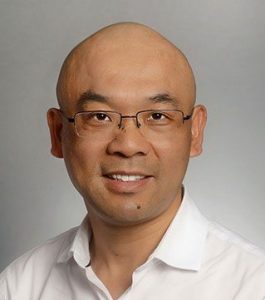
Dec. 28, 2016
Satish Nair
Dr. Nair’s career commitment has been mathematical analysis & design of complex systems for a variety of applications including control, using both computational modeling and experimental techniques. His interests during the past eight years have been in the area of computational neuroscience, at the molecular, cellular, network, and behavioral levels. He has developed two new graduate courses (Theoretical Neuroscience I and II) that focus on intra- and inter-cellular neuronal modeling, and include usage of NEURON and GENESIS packages. Seeded by an NSF CCLI grant, he and biology colleagues Schulz and Schul, designed and have been team-teaching once a year, an…

Dec. 28, 2016
Chi-Ren Shyu
Chi-Ren Shyu (he/him/his) is a Paul K. and Dianne Shumaker Professor in electrical engineering and computer science and serves as the director of the MU Institute for Data Science and Informatics, where 60 interdisciplinary core faculty from 22 departments/schools support more than 160 graduate students in the MS degree program in Data Science & Analytics and PhD degree program in Informatics with emphasis areas in bioinformatics, health informatics and geospatial informatics. Shyu has organized and chaired technical program committees for several IEEE conferences, such as IEEE HealthCom 2011 (Columbia, Missouri), IEEE BigMM 2016 (Taipei, Taiwan), IEEE BIBM 2017 (Kansas City,…

Dec. 28, 2016
Jianlin Cheng
Dr. Jianlin Cheng’s research is focused on bioinformatics, systems biology, machine learning and data mining. To date, his group has designed and developed a variety of cutting-edge computational methods for protein structure and function prediction, proteomics, genomics, biological network simulation, and general machine learning. His protein structure prediction methods were ranked among the best in the last three consecutive biannual Critical Assessment of Techniques for Protein Structure Prediction (CASP7, CASP8, and CASP9), from 2006 to 2010. The bioinformatics tools and web services produced by Dr. Cheng’s research are publicly available and used by life scientists from around the world.
- « Previous
- 1
- …
- 6
- 7
- 8
- 9